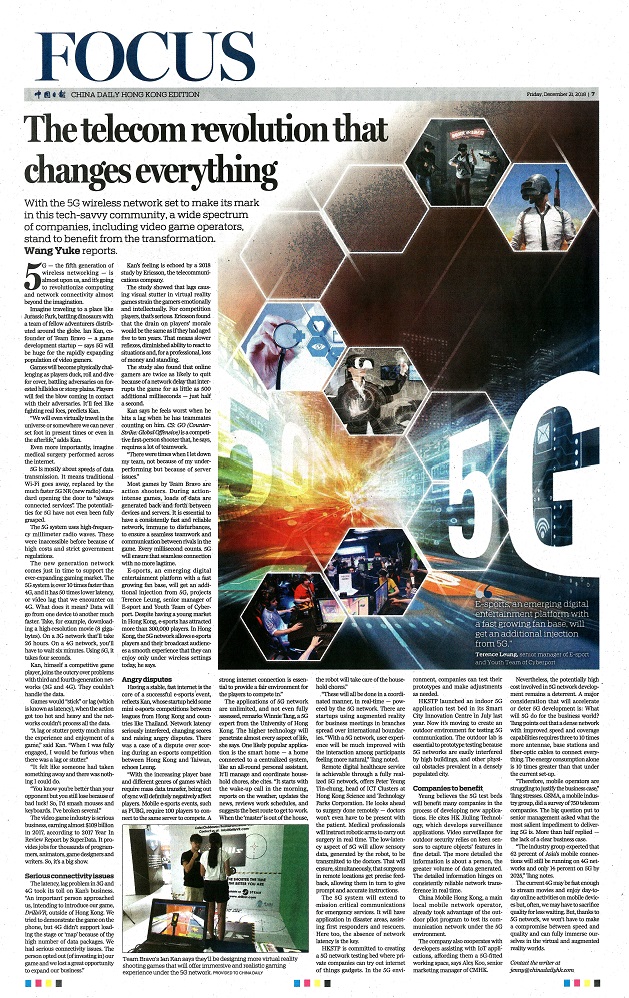網上版請按此

The telecom revolution that changes everything
The applications of 5G network are unlimited, and not even fully assessed, remarks Winnie Tang, a 5G expert from the University of Hong Kong. The higher technology will penetrate almost every aspect of life, she says. One likely popular application is the smart home — a home connected to a centralized system, like an all-round personal assistant. It'll manage and coordinate household chores, she cites. "It starts with the wake-up call in the morning, reports on the weather, updates the news, reviews work schedules, and suggests the best route to get to work. When the 'master' is out of the house, the robot will take care of the household chores."
"These will all be done in a coordinated manner, in real-time — powered by the 5G network. There are startups using augmented reality for business meetings in branches spread over international boundaries. "With a 5G network, user experience will be much improved with the interaction among participants feeling more natural," Tang noted.
Nevertheless, the potentially high cost involved in 5G network development remains a deterrent. A major consideration that will accelerate or deter 5G development is: What will 5G do for the business world? Tang points out that a dense network with improved speed and coverage capabilities requires three to 10 times more antennae, base stations and fiber-optic cables to connect everything. The energy consumption alone is 10 times greater than that under the current set-up.
"Therefore, mobile operators are struggling to justify the business case," Tang stresses. GSMA, a mobile industry group, did a survey of 750 telecom companies. The big question put to senior management asked what the most salient impediment to delivering 5G is. More than half replied — the lack of a clear business case.
"The industry group expected that 62 percent of Asia's mobile connections will still be running on 4G networks and only 14 percent on 5G by 2025," Tang notes.